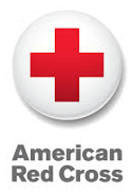 ARC News:
ARC News:
ALBUQUERQUE — The New Mexico Chapter of the American Red Cross would like to offer the following heat safety messaging.
In recent years, excessive heat has caused more deaths than all other weather events.
- Hot cars can be deadly. Never leave children or pets in your vehicle — even for a minute. The inside temperature of the car can quickly reach 120 degrees.
- Check on family, friends, and neighbors who have no air conditioning, spend much of their time alone, or are likely to be affected by the heat.
- If someone doesn’t have air conditioning, they should seek relief from the heat — especially during the warmest hours — in places like libraries, theaters or malls while practicing social distancing, and wearing a facemask.
Stay hydrated by drinking plenty of fluids. Avoid drinks with caffeine or alcohol.
- Avoid extreme temperature changes.
- Wear loose-fitting, lightweight and light-colored clothing. Avoid dark colors because they absorb the sun’s rays.
Slow down, stay indoors, and avoid strenuous exercise during the hottest part of the day.
- Postpone outdoor games and activities.
- Use a buddy system when working in excessive heat. Take frequent breaks.
- Check on animals frequently, and make sure they have plenty of shade and cool water.
Excessive heat can lead to sunburn, heat cramps, heat exhaustion, and heat stroke.
- The signs of heat exhaustion include cool, moist, pale or flushed skin; heavy sweating; headache; nausea; dizziness; weakness; or exhaustion.
- If someone is experiencing these symptoms, move them to a cooler place. Remove or loosen tight clothing. Spray the person with water or apply cool, wet cloths to the skin.
- If the person is conscious, provide small amounts of cool water to drink slowly. Watch for changes in condition. If the person refuses water, vomits, or begins to lose consciousness, call 9-1-1.
- Heat stroke is a life-threatening emergency. Signs include hot, red skin, which may be dry or moist; changes in consciousness; vomiting; and high body temperature.
- If you suspect someone is experiencing heat stroke, call 9-1-1 immediately.
- If possible, move the person to a cooler place and immerse them up to their neck in cold water. Otherwise, spray the person with cold water, or cover the person with cold, wet towels or bags of ice.
Animals can suffer heat stroke, a common problem for pets in the warmer weather
Some of the signs of heat stroke in your pet are • Heavy panting and unable to calm down, even when lying down. • Brick red gum color • Fast pulse rate • Unable to get up.
If you suspect your pet has heat stroke, take their temperature rectally. • If the temperature is above 105 degrees, cool the animal down. The easiest way to do this is by using the water hose. Stop cooling the animal when its temperature reaches 103 degrees. • Bring your pet to the veterinarian as soon as possible, as heat stroke can lead to severe organ dysfunction and damage.
Download the Red Cross Pet First Aid app and take the Cat and Dog First Aid course. ▪ The app features step-by-step instructions for cat and dog first aid emergencies, and more. Users can find it in smartphone app stores by searching for the American Red Cross, texting GETPET to 90999 for a link to download the app, or by going to redcross.org/apps. ▪ Take the Cat and Dog First Aid online course (redcross.org/catdogfirstaid) to learn what to do for bleeding, seizures, heatstroke, and your pet’s well-being.
Download the free Red Cross Emergency App to have heat safety information right at your fingertips.
About the American Red Cross
The American Red Cross shelters, feeds and provides emotional support to victims of disasters; supplies about 40 percent of the nation’s blood; teaches skills that save lives; provides humanitarian aid; and supports military members and their families. The Red Cross is a not-for-profit organization that depends on volunteers and the generosity of the American public to perform its mission. For more information, please visit redcross.org or cruzrojaamericana.org, or visit us on Twitter at @RedCross.

